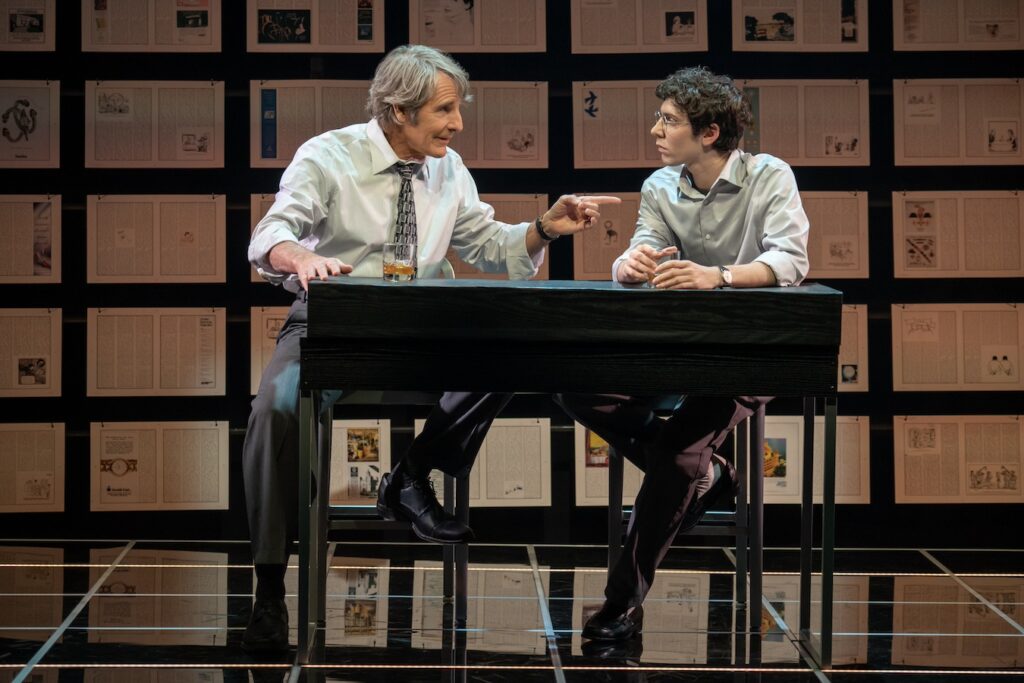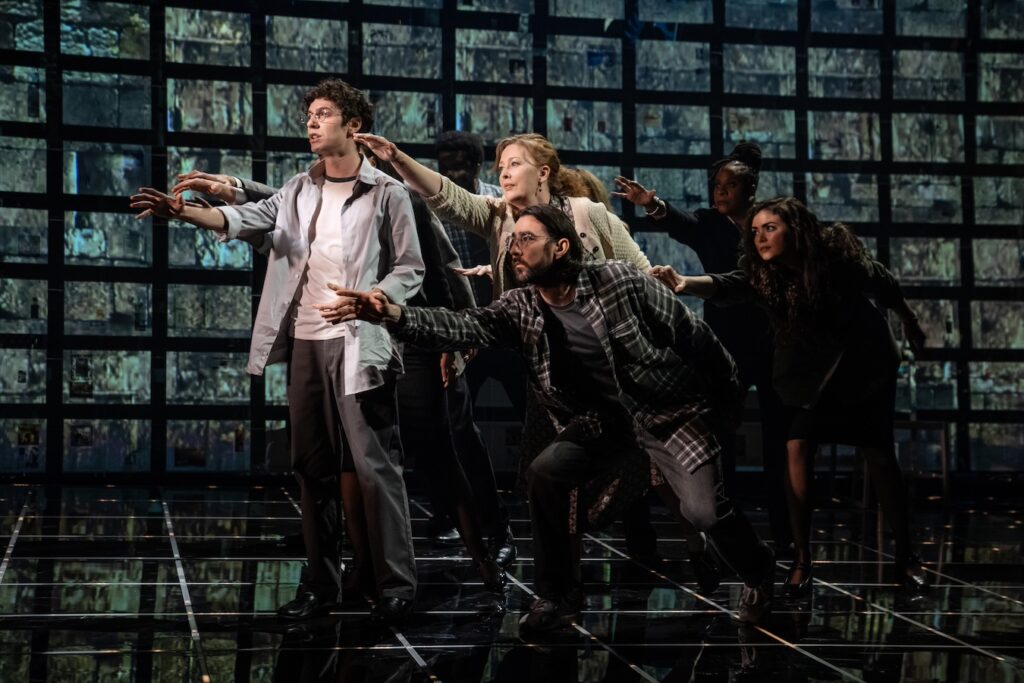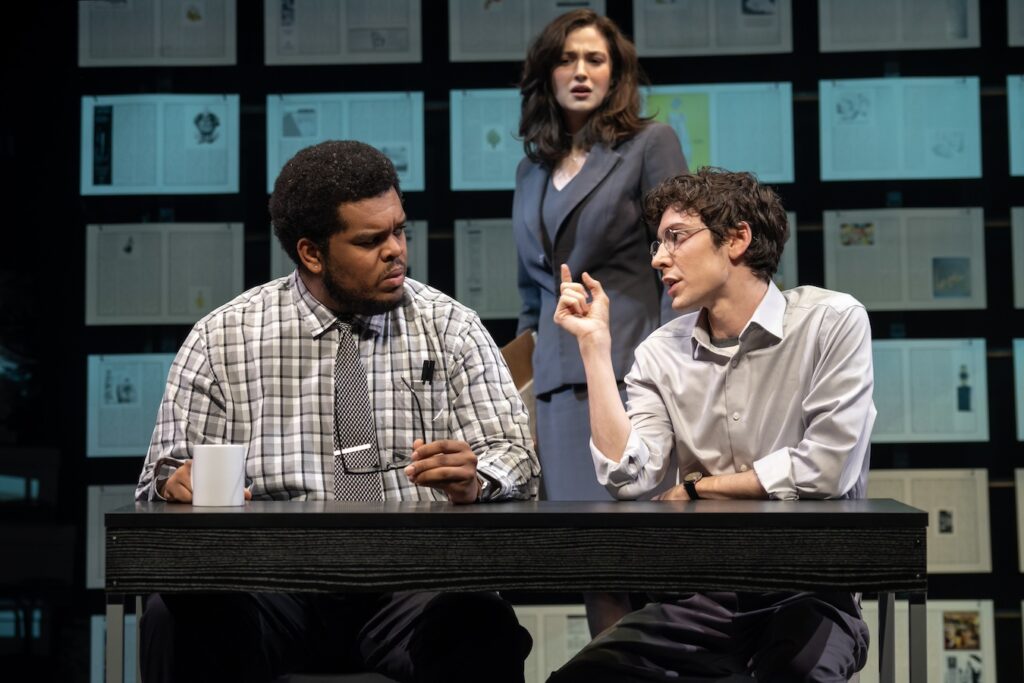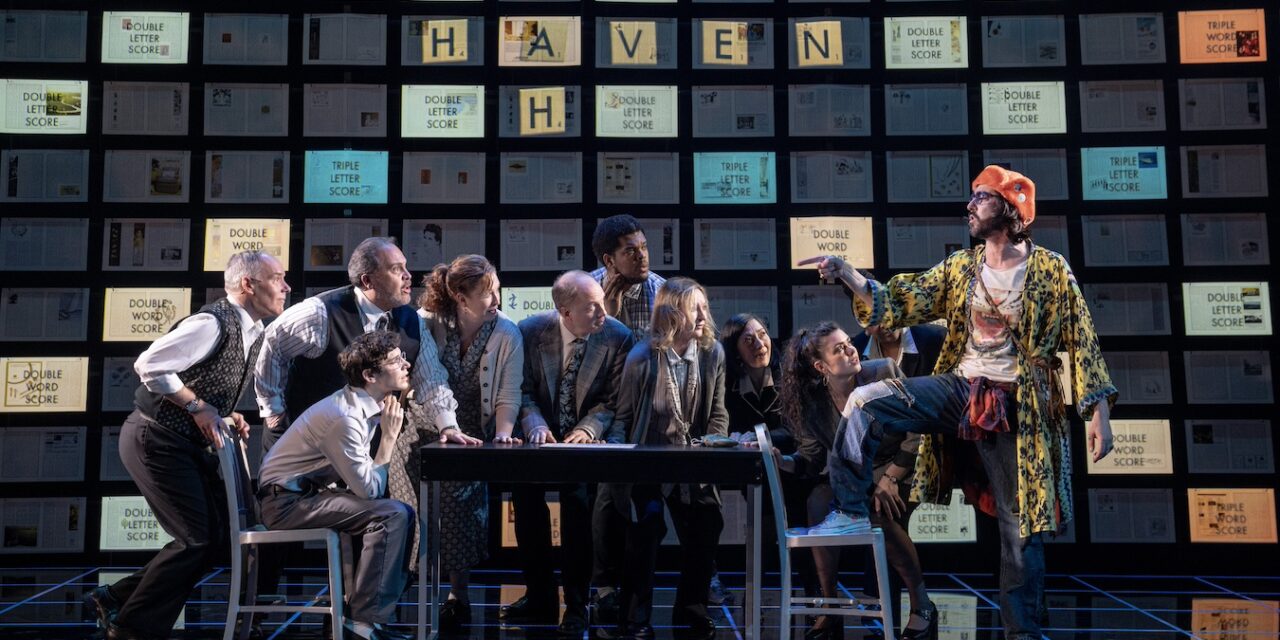Theater Review by Brian Scott Lipton . . . .
“Believe half of what you see and none of what you hear,” we were told over 50 years ago in the Motown classic “I Heard It Through the Grapevine.” But what about what we read? If the printed word once seemed like gospel truth, the revelations about bots on social media and the publishing scandals of writers such as Jayson Blair of The New York Times and Stephen Glass of The New Republic have since laid their own seeds of doubt.
So does the compelling new musical The Connector, a collaboration by the great composer Jason Robert Brown, the celebrated playwright Jonathan Marc Sherman and the excellent director Daisy Prince—now at MCC Theater—that bears more than a passing resemblance to Glass’ tale. And even if the show works as nothing more than a reminder to think twice about what you read, it should also be seen as a cautionary tale about the dangers of ambition, hubris, and (to quote one of Brown’s best song’s title) success.

Intentionally or not, it also seems to be a missile guided at white male privilege, since the printing of the completely unverified story about the mayor of Jersey City that causes the demise of the 50-year-old magazine, The Connector (think The Atlantic), in 1997 proves to be the fault of three white men.
The first is its author, the all-too-eager-for-approval Ethan Dobson (Ben Levi Ross, sometimes channeling his former role as Evan Hansen), a Princeton graduate who scores big with his first article for The Connector about a Greenwich Village Scrabble wizard named Waldo (a mesmerizing Max Crumm) and never stops for breath once he’s hired full-time.
Second is the publication’s venerated editor-in-chief Conrad O’Brian (a magnetic Scott Bakula, absent far too long from our stages), who both sees a much younger version of himself in Ethan and is also worried about his own fading importance in the publishing world. And then there’s the company’s lawyer Zachary Fleischer (a fine Daniel Jenkins), who approves the story’s publication despite the evidence in front of his nose. (As much as the show sometimes inflamed me as a journalist, it angered me the most—as a retired lawyer—with this incredibly unbelievable plot point.)


It’s not like these men haven’t been warned . . . by three different women: the magazine’s copy editor Robin Martinez (a powerful Hannah Cruz) is suspicious of Ethan almost immediately, even while being attracted to him; The Connector’s respected and hard-nosed fact-checker Muriel (a sublime Jessica Molaskey, who stops the show with Brown’s brilliant ballad “Proof”) practically demands the story not run; and, an overly involved reader named Mona Bland (a wondrous Mylinda Hull) has sent many unanswered letters noting some discrepancies she’s caught in other articles and, eventually, in Ethan’s last piece.
Brown’s often propulsive score is his best in years, including Robin’s barnburner “Cassandra” and her pungent “I Came to New York” (which begins with a major barb at Texas and all its residents) and culminating with the infectious group number “The Wailing Wall” (one of the few to showcase Karla Puno Garcia’s choreography).


Sherman’s book, however, needs work if the musical is to have a further life on stage, most notably in its depiction of Robin and Ethan’s “relationship.” We never understand the initial basis for their friendship, since Robin, a Hispanic woman who can’t push past the glass ceiling at The Connector, almost immediately resents Ethan’s quick ascent. And frankly, Ethan is just not very likable, at least as portrayed by Ross. Nor do we fully understand, even at the end, the motivation for his questionable behavior.
The entire enterprise is smartly staged by Prince on Beowulf Boritt’s highly effective set: a minimalist stage of desks, flanked by a back wall made up of newspaper pages and surrounded on each side by stacks and stacks and stacks of paper, where the cast members sit while not performing.
Truth, we’ve long been told, is stranger than fiction. It is, however, supposed to be the same as non-fiction. The Connector sadly shows us otherwise.
The Connector. Through March 17 at The Robert W. Wilson MCC Theater Space (511 West 52nd Street, between Tenth and Eleventh Avenues). www.mcctheater.org
Photos: Joan Marcus


















